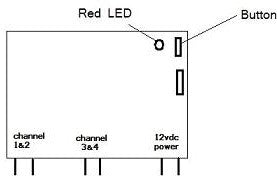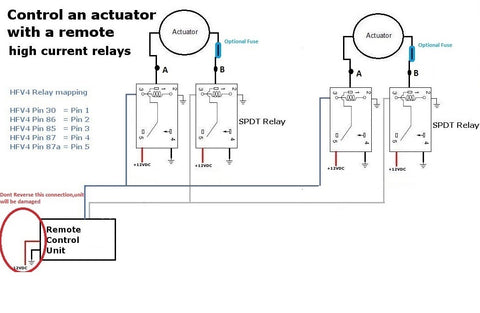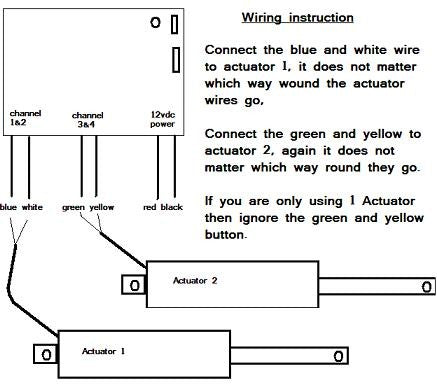We show you how to control two linear actuators remotely with Firgelli a 4 channel remote control kit. These Remotes are RF (radio Frequency) so that line of sight is NOT required, and you can operate each Actuator totally independently of each other.
Change from momentary to sustaining
The remote system come programmed in momentary mode, this means that the actuator will move for as long as your finger is held on the button. In sustaining mode you only have to press the button once and the actuator will go all the way to the end, and will stop once the Actuator reaches its internal limit switch and then shut-off
To change the operating mode from Momentary to Sustaining, all you have to do is open up the case on the receiver and remove the jumper that connects 2 pins together and place it on just 1 pin, then you need to remove the power to the remote receiver and then apply the power again, this resets the system.

Programming more remotes
To program more remotes you press and hold the button on the circuit board, you will have to open the case first. Hold the button for a few seconds until the red LED flashes. Then press any button on each of the remotes you want to program, 1 at a time, so if you have 4 remotes you need to program all the remotes, even if they were already programmed, and just press any one of the 4 buttons on each remote. Then remove the power from the receiver and plug it back in again. Now all remotes should work with the receiver

Exceeding a load of 5 amps
The remote control board is rated for a maximum current draw of 5 amps per channel, which makes it compatible with most of our standard linear actuators including the Premium and Classic series. However, some of our high force actuators such as the Industrial Heavy Duty Actuator are rated for a current draw of 20 amps. Connecting such an actuator to this control board will irreversibly damage the board. Instead we advise using a 4 SPDT 20 amp relays (and optionally two wiring harness) to isolate the remote control board from the actuator. Wire the circuit as shown in the picture below.
You can optionally also choose to connect addition actuators to the points labelled “A” and “B” in the diagram below, so long as the current draw through each relay doesn’t exceed 20 amps

